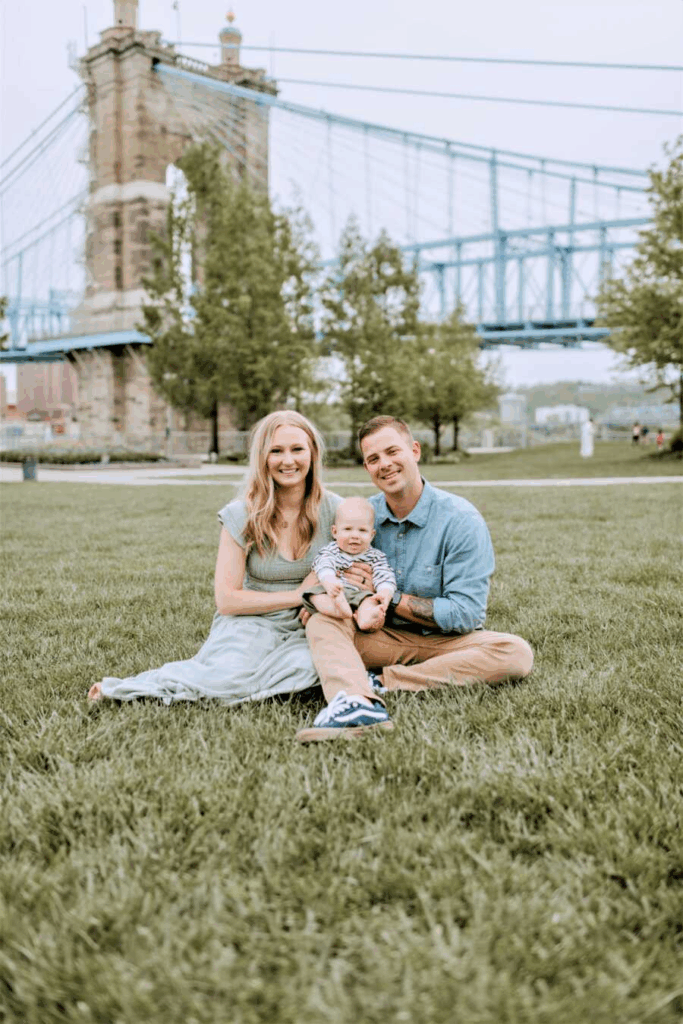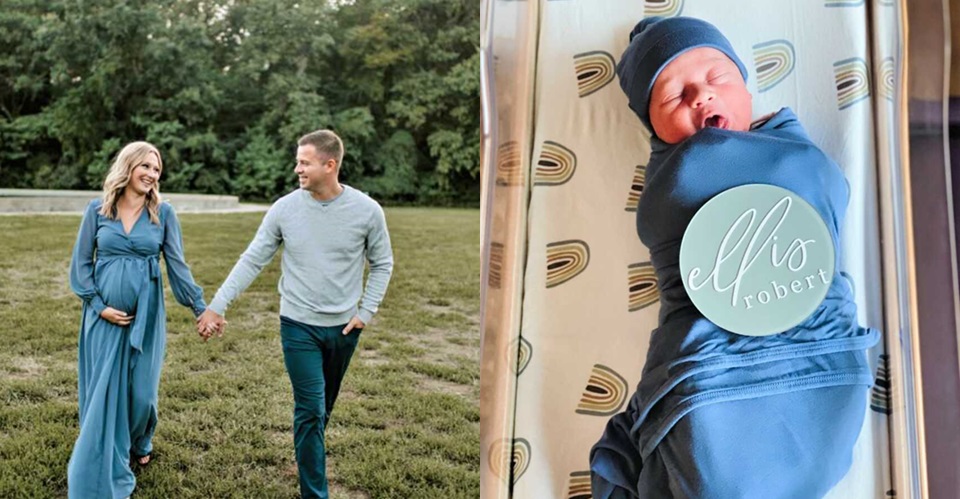Their family learned that storms can take what you hoped for, but love can hold what remains, Noah in their hearts, Ellis in their arms, and a rainbow that keeps showing up when they look for it. She found out she was pregnant in January 2020 and felt everything at once: shock, joy, and the fizzing excitement of planning a first nursery with her husband. He was on an overnight shift at the firehouse when she took the test, so she lay awake until morning, replaying how she would tell him. He was just as thrilled. They picked names and tiny clothes, rode the wave of first-time bliss, and then the world shut down. After one regular appointment together, pandemic rules meant he waited in the car while she went upstairs alone.
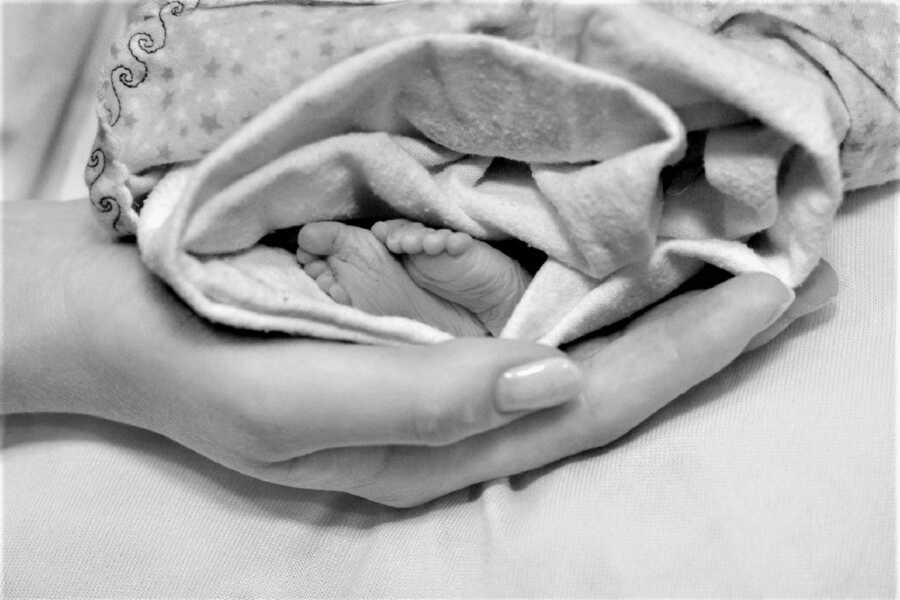
For months, everything looked fine. At 20 weeks, they learned they were having a boy and named him Noah. But around 25 weeks, she felt fewer kicks. At 26 weeks, she realized she hadn’t felt him move for days. Her husband urged her to call the doctor. She hesitated, afraid to hear what her heart already knew. Lying on the exam table by herself, she watched the screen go still and listened to the words no parent should ever hear: there was no heartbeat. He was in the parking lot, waiting for an update; she was alone, free-falling.
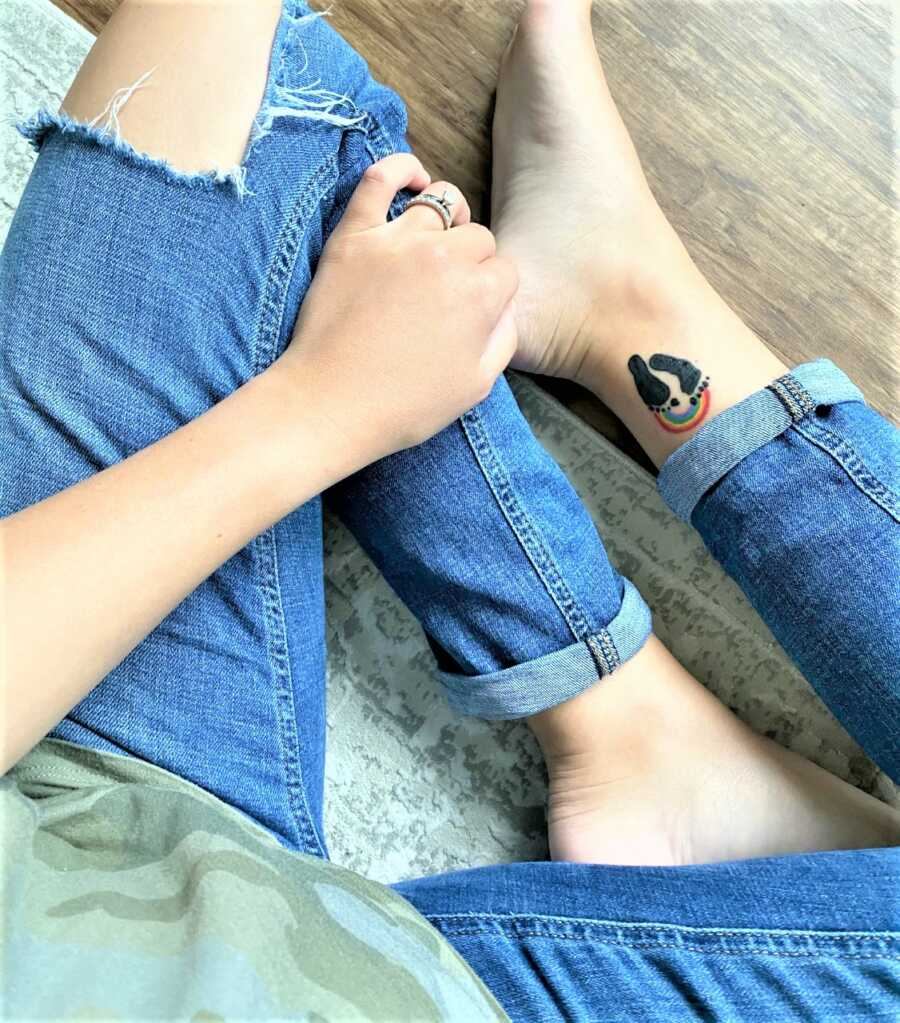
They went to the hospital to be induced. After about sixteen hours, Noah was delivered still, weighing 1 pound 6 ounces. They held him, kissed him, and memorized his tiny feet. The emptiness rushed in; she felt she had failed herself, her husband, and her son as she looked out the hospital window in the hours after, a rainbow arched across the sky. Family and friends in town saw it, too. The verse about God’s promise to Noah came to mind, and for a moment, she felt held. Leaving the hospital was surreal: no balloons, no car seat, just two people and a keepsake box with a hat, a swaddle, and inked footprints. They made arrangements no parent should make, choosing an urn small enough for a baby and designing a headstone.
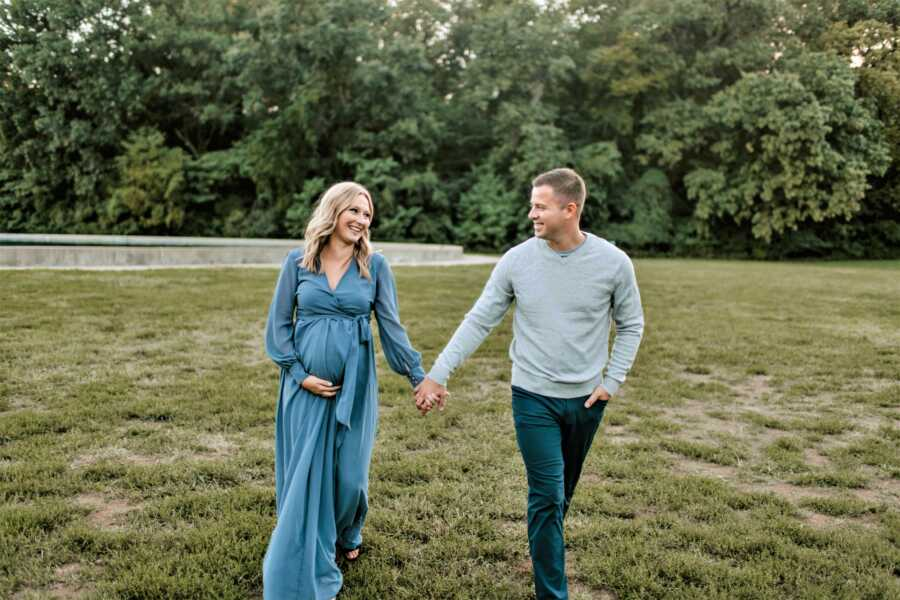
They cremated Noah and buried his ashes so there would be a place to visit. Wanting to carry him close, they got matching tattoos: his footprints and a rainbow, hers on her ankle, his on his chest, so that every step and every heartbeat held their boy. Hope rose again, then broke again. She became pregnant and miscarried at six weeks. Surgery followed almost as soon as the news. Doubt crashed over them; maybe their family would never grow. But they kept going, one week at a time. The subsequent pregnancy was labeled high risk: weekly appointments, then twice a week in the third trimester, months of tight breath and quiet prayers.
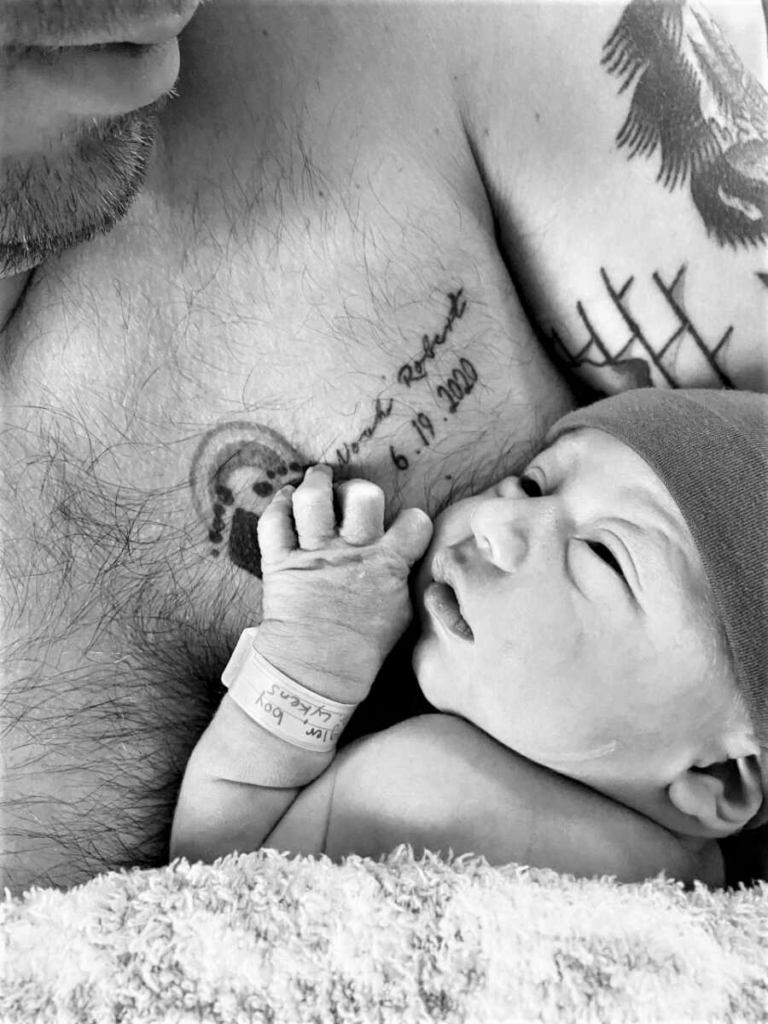
Nearly two years after losing Noah, their rainbow baby arrived. Ellis came at full term, healthy and perfect. In the hospital, during skin-to-skin, Ellis kept reaching for the tiny footprints in his father’s tattoo, a small, aching kindness in a room full of joy. They are happy again, truly. They are also still sad. That is the truth of life after loss: love doesn’t erase grief; it sits beside it. There will always be a missing piece. She carries Noah in the softest parts of her day and in the bright ones, on walks where her ankle tattoo peeks out, in quiet car rides to the cemetery, and as she watches Ellis breathe when the house is dark.
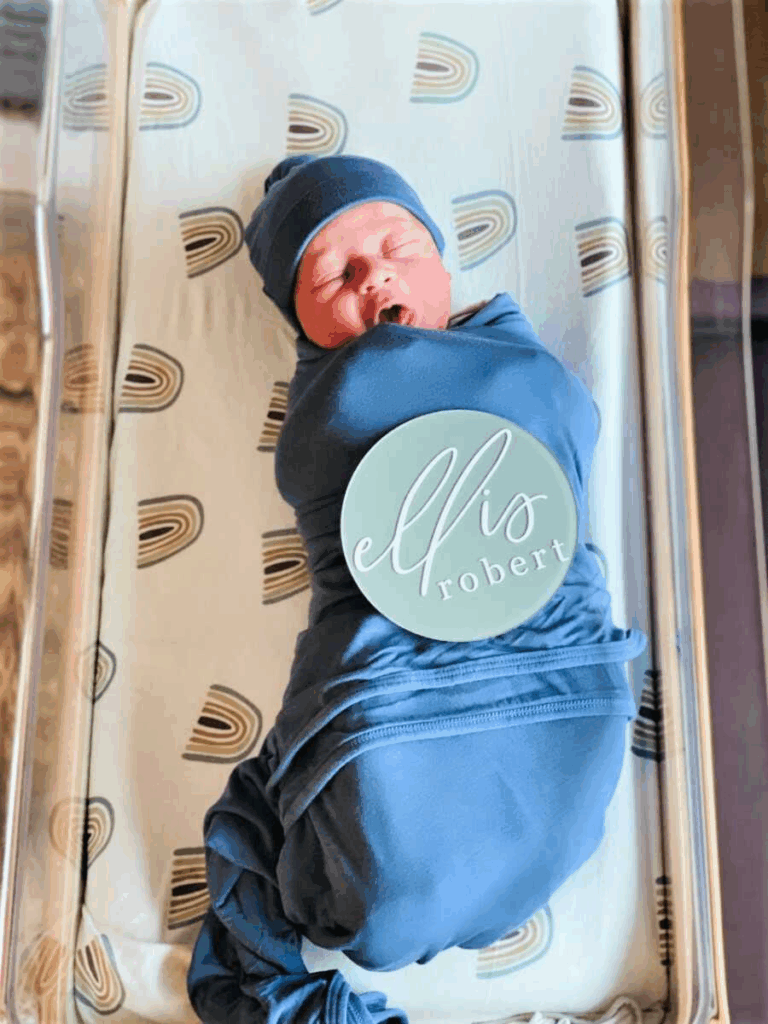
Parenting after loss has remade their marriage. They believe Noah’s brief life changed them in ways that keep them bound to each other and kinder to the world. Ellis has a big brother he will never meet but will always know. When they say his name, it softens the room.
She decided to turn pain into purpose. By sharing her story, she found women who needed a hand to hold and a voice that said, “Me too.” She answers messages, sends resources, and sits with people in the hardest hours so they don’t feel alone. She wishes she’d had someone like that when the silence of the ultrasound filled the air. Now she is that someone, carrying forward a love that did not end.
